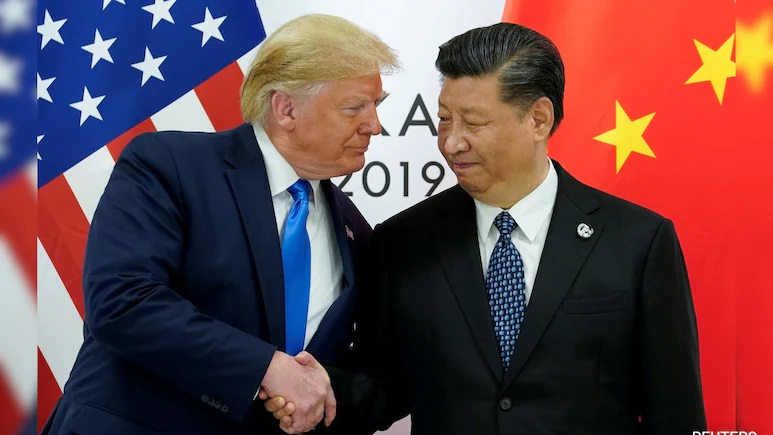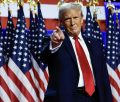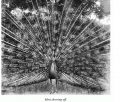Reality Shadow over Sino-American ties

By Malladi Rama Rao
Long before Trump Tarif wars have threatened China in what is no more than a deal making rhetoric, HR violations and BRI debt trap are the preferred weapons of the West to target Beijing. And have become stale narrative, as the Global Times editorially remarked on Wednesday, Dec 11, 2024.
The US of America nor its closest ally, Canada, is lily white when it comes to human rights; both like many other Western countries have been using plight of Uyghur Muslims and the hardships faced by followers of Falun Gong (Dharma Wheel Practice, a movement launched in the early 1990s by New York-based Li Hongzhi) to advance their own interests. The latest Canadian sanctions against some Chinese officials on the charge of human rights violations are, therefore, neither here nor there.
Because like the US, Canada cannot lay claim to high moral ground what with evidence of its cultural genocide from 1870 to 1996; the big spurt in anti-Asian criminal cases and the fixation with Khalistan make Ottawa’s bellowing a mumble.
The Americans roar too has stopped resonating what with the blood on their hands from Southern America to South East Asia. Like its northern neighbour, the US is also pampering the Khalistanis for some diplomatic gains wrapped in mystery.
If Washington is really keen to drive home its case against China, it could have rolled back its economic engagement with Beijing. It did not. Instead, it had brought curtains down on the ‘isolation’ of China in 1972 claiming that “restoring communication” with China is “a way of mitigating suspicion and miscalculation, which could lead to war.”
So much so, the HR bark has become a blunted weapon. Well, a self-inflicted wound for the West.
BRI DEBT TRAP
there is an element of unvarnished truth in the oft heard contention that the pet project of President Xi Jinping is not what it is touted to be – a “symbol of solidarity and cooperation among the Global South countries”.
It has pushed some into debts; it has seen the sprouting of Chinese enclaves to the dismay of locals, who are up in arms against the Big brother intruder.
Nonetheless, there is no denying that there is, “tangible development achievements that Western smear over China’s cooperation with a wide range of developing countries has been effectively dispelled,” as the Global Times asserts.
This is the reason why new and old concepts, like China threat, ecological destruction, and debt trap have not stood in the way of new BRI ventures.
SHORT-SIGHTED POLICY
If this programme has slowed down, it is primarily because of President Xi’s trouble at home with rampant corruption, nepotism, mismanagement, and the practice of talking up growth rates undermining his stakes.
In so far, the West is concerned, it has to blame itself for its failure to come up with an attractive alternative to BRI. Washington is compounding its misery with its short-sighted policy of targeting an Indian MNC that had dared to extend its foot print to countries shunned by its very own MNCs.
The failure of American narrative is a direct fall -out of the failure to appreciate the importance of building infrastructure like railways and highways for social uplift and regional integration.
Here in lies the message to the incoming American President Donald Trump who fancies himself as new Tsar of trade protectionism. He will do well to heed the ancient Chinese adage that “no mountain or ocean can separate those who share the same aspirations”.
Today, the world is a globalised village with ‘intertwined destinies and shared paths’; there is no room for either excessive exuberance or solo adventurism.
Well, there is a message to President Xi Jinping from the global market place as well. It is that there is no room for optimism sans realism.
Interacting with heads of major international economic organizations in Beijing on Dec 10, he expressed confidence of achieving this year’s economic growth target. And said China will continue to play its role as the biggest engine of world economic growth.
Xi plans further open up to the outside world, proactively align with high-standard international economic and trade rules, and build a market-oriented, law-based and internationalized business environment to provide more opportunities for and share more development dividends with other countries, according to the Xinhua News Agency.
The success of this mantra largely depends on two factors – one grip of President Xi on the Chinese scrip, which remains unclear, two, tariff wars, trade wars and sci-tech wars lurking in the shadows.
Both factors can toss up China-US trade, which reached $612.4 billion in the first 11 months of 2024, up 4.2 percent year-on-year, with China’s exports to the US expanding 5.1 percent year-on-year.
Already faced with ‘increasing pressure’ and ‘exclusionary policies’, more and more Chinese scientists are forced to leave the US, says Professor Shing-Tung, a renowned Chinese-American mathematician.
“The US government has shown serious discrimination against Chinese scientists over the past decade. Many Chinese scientists eager to contribute to the US feel uncomfortable. To make matters worse, some have faced accusations from intelligence agencies of stealing confidential information from the US”, the learned professor was quoted on Dec 10, 2024.
Global Times attributes the situation to ‘securitization’ of all China-related matters in the US scientific sphere to suppress China’s development. And pops up the question whether the US is initiating a ‘cold tech war’.
Clearly today, ‘The Week that Changed the World’ in 1972 looks less momentous. (SAS)
(This commentary first appeared on Deccan Council )
-
Book Shelf
-
 Book Review
DESTINY OF A DYSFUNCTIONAL NUCLEAR STATE
Book Review
DESTINY OF A DYSFUNCTIONAL NUCLEAR STATE
- Book ReviewChina FO Presser Where is the fountainhead of jihad?
- Book ReviewNews Pak Syndrome bedevils Indo-Bangla ties
- Book Review Understanding Vedic Equality….: Book Review
- Book Review Buddhism Made Easy: Book Review
- Book ReviewNews Elegant Summary Of Krishnamurti’s teachings
- Book Review Review: Perspectives: The Timeless Way of Wisdom
- Book ReviewNews Rituals too a world of Rhythm
- Book Review Marx After Marxism
- Book Review John Updike’s Terrorist – a review
-
-
Recent Top Post
- News Pope Francis dies: an unconventional pontiff who sought to modernise Catholicism
-
 CommentariesTop Story
India’s Migration Dilemma
CommentariesTop Story
India’s Migration Dilemma
-
 Commentaries
Crowd Management Blues
Commentaries
Crowd Management Blues
-
 Meher Baba SpeaksNews
Meher Baba Loved Them Too…
Meher Baba SpeaksNews
Meher Baba Loved Them Too…
- Commentaries Record Pentagon spending bill and America’s hidden nuclear rearmament
-
 CommentariesNews
Ides of trade between India and Pakistan
CommentariesNews
Ides of trade between India and Pakistan
-
 Commentaries
How sustainable is the rhetoric of India-China Bhai-Bhai
Commentaries
How sustainable is the rhetoric of India-China Bhai-Bhai
-
 CommentariesTop Story
New Set of Diplomatic Strains with Canada
CommentariesTop Story
New Set of Diplomatic Strains with Canada
-
 News
Ratan Tata’s Legacy
News
Ratan Tata’s Legacy
-
 Commentaries
India’s Strategic Push on the World Stage
Commentaries
India’s Strategic Push on the World Stage
AdSense code















